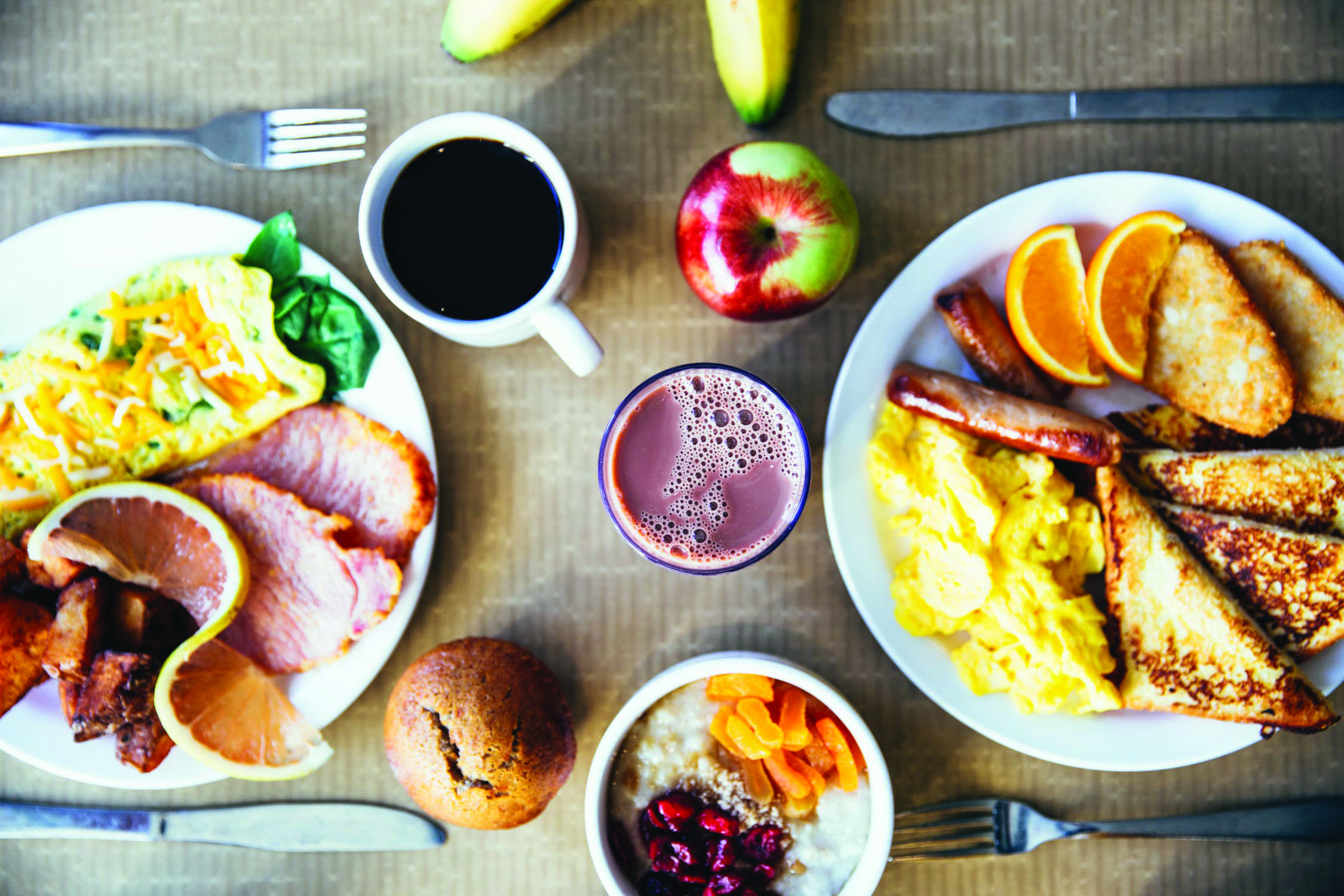Sajila Nudrat | Health Editor
Featured Image: Breakfast refuels the body and the brain with energy and nutrients. | Courtesy of Pexels
Breakfast is considered the most important meal of the day, but realistically speaking, is it worth all the hassle? Between juggling the busy day-to-day activities involved in student life and getting to and from class, time is limited, and there are always more things to do. Can breakfast be sacrificed for the greater good?
It turns out, it depends on the circumstances. Research indicates that those who eat breakfast have healthier weights than those who do not, and they also perform better on memory tests. However, skipping out on breakfast is better than indulging in an unhealthy one.
The ideal type of breakfast is high in carbohydrates, rich in nutrients, and low in fat. A person should get a quarter of their daily nutrients from their breakfast. Having a well-balanced diet can provide them with the energy to get them through the day, and prevent them from overindulging during the rest of the day.
Aside from the meal providing energy to sustain the body throughout the day, breakfast foods tend to have important nutrients in them such as calcium, iron, and vitamins. Research indicates that when these essential nutrients are missed during breakfast, it’s much harder to acquire them later in the day.
“I have breakfast in the morning because my dad makes it for me. I do feel more energetic on the days that I have breakfast. I usually have it between eight to 10 a.m. and my breakfast consists of oatmeal and raisins. When I don’t have breakfast I feel super tired and will probably fall asleep in class.” Says Ramnit Poonia, a second-year law and society major.
Some beneficial breakfast foods include: eggs, greek yogurt, coffee, oatmeal, chia seeds, berries, nuts, green tea, a protein shake, fruit, flax seeds, and goat cheese, to name a few. However, not all breakfast foods are necessarily good for the body. For example, most breakfast cereals are just a combination of sugar and refined grain. The nutrients are added artificially in a process called fortification. Pancakes and waffles are also popular morning foods, however they are rich in refined flour, which is said to contribute to insulin resistance and obesity. Margarine is used by some as a butter supplement, however, most margarines contain trans fat, a very unhealthy kind of fat. Lastly, granola bars can often seem like a quick and healthy option, but, on average they only provide one to three grams of fibre and a significant amount of sugar, making them as bad as candy bars.
Having breakfast is not an option every person indulges in. Shayandeep Das, a second- year health services financial management student, talks about his experience with intermittent fasting. “It is basically a type of fast where you do not eat anything for at least 16 hours in a day, and then during the rest of the 8 hours you have the meal requirements—the number of calories—you should have in a day. This diet is followed by several athletes including, but not limited to, Tom Brady and Dwayne ‘the Rock’ Johnson.” When asked about the benefits of this type of diet, Das replied, “it helps the body burn excess fat, as it reacts as if it’s experiencing malnutrition, thus it starts utilizing stored fats, ensuring fats storage reduces, and your body mass index reaches the ideal number.
I’ve been doing this for about two years now and i’ve lost about 8 kg’s. I never have breakfast, the earliest I eat in the day is 2 or 3 p.m. I eat dinner by 8 p.m or before that. I generally go for a balanced diet, but it really depends on my calories count, I do 1,600 per day.”
It can be be difficult managing breakfast in the morning, let alone a healthy one; but it’s necessary to keep the body running smoothly.


